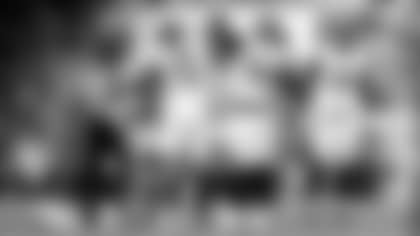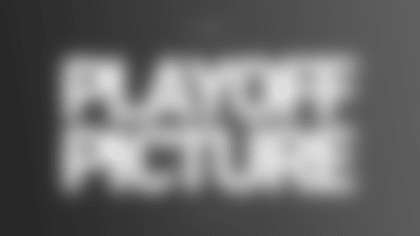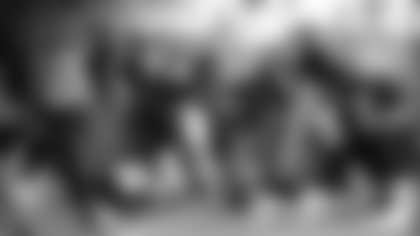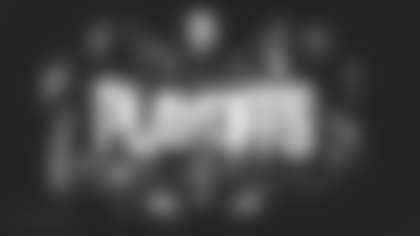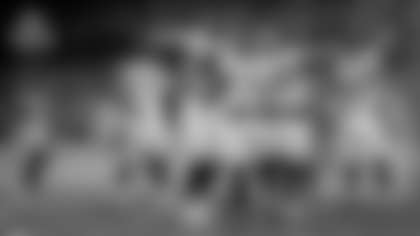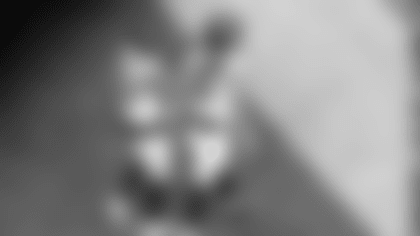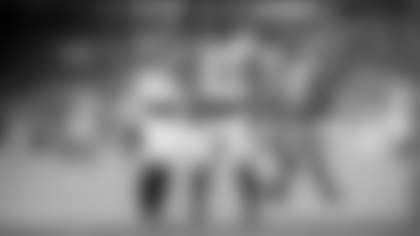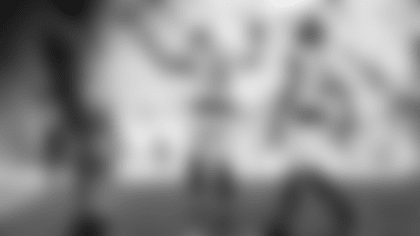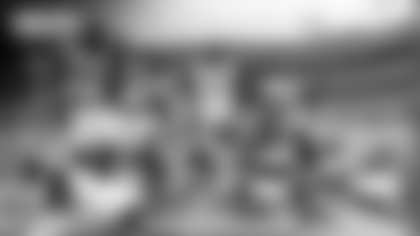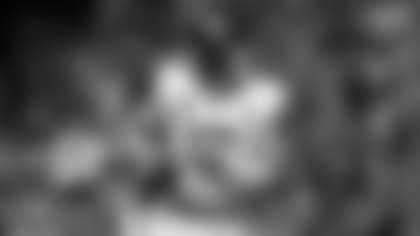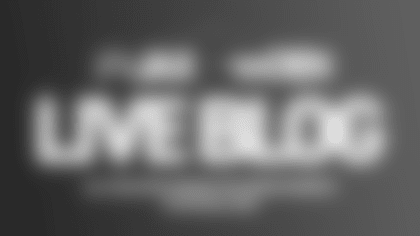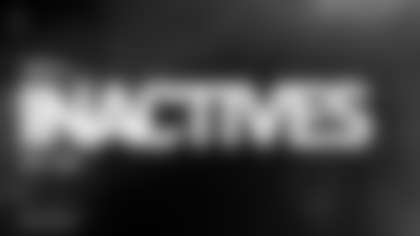Join Jaguars Inside Report Senior Editor Vic Ketchman as he tackles the fans' tough questions.
Josh from Jacksonville:
I have wondered for years how the officials know where to spot the ball when a punt goes out of bounds. On paper, it would seem to be a simple matter of triangulation, but from their positions on the field, it looks like it would be impossible to be very accurate. Is there a science to it, or is it a guessing game? The punts in question are the ones that land 5-10 yards out, not the ones that bounce out.
Vic: The science is this: The referee stands near the punter. When the ball is kicked deep out of bounds, the referee moves to where the punter was standing and picks a spot in the background where he believes the ball to have landed. Then the official on that side of the field walks up the sideline until he intersects the line between the referee and the spot where he judged the ball to have landed. The referee signals for the assisting official to stop and mark the ball at that spot.
Bjoern from Stockholm, Sweden:
Great column; I've read it every week since the days of yore. However, since I do not live in the Jacksonville area, what's a TV blackout and how many games per year are usually blacked out?
Vic: You certainly do not live in the Jacksonville area or you would know a TV blackout occurs when the Jaguars don't sell enough tickets for the game to be televised locally. This Sunday's game against Tennessee will be the third regular-season TV blackout this year, and there will likely be three more. By the way, shouldn't you be a Vikings fan?
Newt from Jacksonville:
In 1996, what was the Jags' record when they started the stretch of games that made us end up at 9-7 for the regular season?
Vic: The Jaguars were 4-7 and coming off a 28-3 beating in Pittsburgh the previous week, when they played in Baltimore on Nov. 24, 1996. Making the playoffs weren't even a thought. In fact, a lot of people wondered if the Jaguars would win another game that season, and they appeared to be on their way to their eighth loss of the season before Mark Brunell rallied the Jaguars from 15 points down in the fourth quarter to an overtime win. Six more wins put them in the AFC title game.
Jon from Orange Park, FL:
Do you agree the TV blackouts will have a negative impact on youngsters getting involved in all things Jaguars? Personally, I think that as more and more blackouts occur, community enthusiasm, particularly in youngsters, will wane, which can only make filling the stadium that much more difficult. What are some answers to ending these blackouts?
Vic: The answer is obvious: Buy tickets. Stop looking for ways to short-circuit the system. You gotta buy tickets, or take seats out. It's that simple. As far as that "negative impact on youngsters" stuff, I can't help but think of the TV blackout rule of my youth. It was real simple. If your team played at home, you didn't see the game, period; no exceptions, not even for the playoffs. Did you know that Los Angeles, the host city for Super Bowl I, was blacked out for that game because it wasn't sold out? Why didn't our enthusiasm wane? Why did we sit by the radio and hang on every word and dream about what it must've all looked like? Have our kids become so spoiled that they're above listening to the radio? Maybe blackouts aren't the real problem.
Steve from Kensington, MD:
Is there any stat that's not misleading?
Vic: The idea is not to find misleading stats, but those stats that are true indicators of what a team's strengths and weaknesses are. Do they exist? Absolutely. Two stats I believe are very telling are time of possession and points scored. If both are high, then you have an efficient, ball-control offense that's finishing its drives on the way to the playoffs. If time of possession is high and points are low, then you'd start looking at red-zone percentages, kicker stats or giveaways/takeaways. It's all in the stats; you just have to know how to fit them together.
Ryan from Jacksonville:
Many of the league's star quarterbacks, such as Donovan McNabb and Joey Harrington, have been struggling recently. Both of these players have injuries to their throwing hands which, if allowed to heal, would likely improve their performances. Do you think players are indirectly pressured to play through these injuries out of fear of losing their starting jobs? It seems to be a double-edged sword, as their resulting poor play now begets an increasing demand for their long-term replacement.
Vic: You gotta play hurt. That part of the game has never changed. The best players are the ones who play hurt the best.


